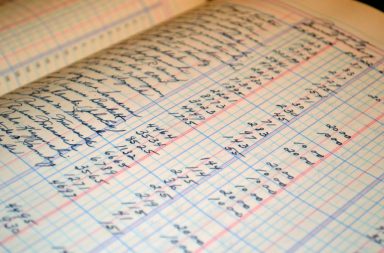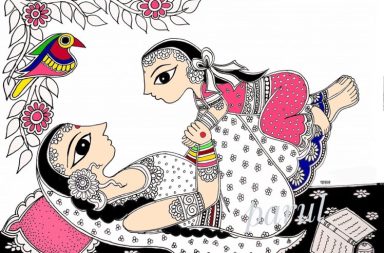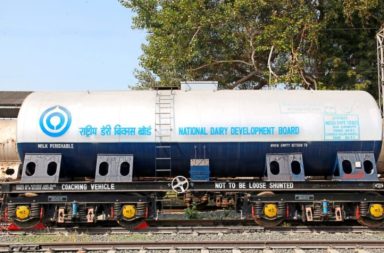
This story takes us back to the early 1980s, a time when the National Dairy Development Board (NDDB) had not yet revolutionized India’s edible oil market with its “Dhara” brand, nor had the Indian government approved NDDB’s Market Intervention Operation (MIO). During this period, the Indian Dairy Corporation (IDC) had not yet merged with NDDB to form body corporate of national importance of the same name NDDB, through an act passed by the Indian Parliament. At that time, NDDB was a body registered under the Charitable Societies Act and the Bombay Public Trust Act.
Dr. Kurien served as the honorary Chairman of NDDB from 1965 to 1998, never accepting a salary from the Indian government for his position. Dr Kurien as the Chairman of NDDB was appointed by the government, with a specified term of one to two years, often extended month by month. Other board members were appointed based on the Chairman’s advice, with some being officials from the government.
As the late Atal Bihari Vajpayee would say, “Brothers, sisters, ladies and gentlemen,” this is the story.
What? You think I will just tell a tall tale? Oh no, not today. Maybe another time.
Every story is not just a fabrication. True, some stories may weave elements of fiction, but there are also true stories, and this one is grounded in reality, lived reality. Yes, memories tend to fade with time. Anyway, instead of philosophizing, I will do what I want to do.
So, “brothers, sisters, ladies and gentlemen,” an interesting incident occurred at NDDB’s headquarters in Anand, Gujarat, in the early 1980s. Events don’t wait for us to be happen; they just happen. Whether the event is interesting or not depends on those who experience it and how they felt at that moment. It was a time when landline phones were the primary means of communication, often unreliable and erratic.
The audit, conducted by international auditors, felt like a battlefield, and Dr. Verghese Kurien—the “Milkman of India” and architect of the White Revolution—was steering NDDB into uncharted territories.
As the head of NDDB’s oilseed and vegetable oil division, I found myself at the center of a contentious confrontation with two auditors from USAID.
At that time, in addition to being the Executive Assistant to the Chairman, I had also been appointed as the head of NDDB’s oilseed and vegetable oil wing. Dr. Chothani had not yet become the Executive Director of that wing.
One morning, Dr. Kurien called me to his office. As I entered the room, he asked, “How are your friends?” I understood he was referring to the two USAID auditors. For the past ten to fifteen days, these auditors had been stationed at the NDDB office, occupying the room directly across from mine. They would sit there daily, working and requesting files or financial statements, which were provided to them. Since the matter concerned my division, I was the primary point of contact for responding on behalf of NDDB, assisted by Mr. G. Rangam from the accounts department.
NDDB’s Oilseeds and Vegetable Oil Project
Under this project, the United States supplied the National Dairy Development Board in India with 160,000 tons of refined soybean oil. This edible oil was supplied as a gift by the American agency USAID through the Cooperative League of the USA (CLUSA) to the NDDB at designated ports in India. Later, the Canadian International Development Agency (CIDA) also gifted 90,000 tons of crude rapeseed oil to NDDB through the Cooperative Union of Canada (CUC). This oil was refined and sold in Indian markets. The funds collected were used to implement NDDB’s oilseed and vegetable oil project.
We had shown the auditors a complete account of project finances and ledgers. However, they insisted on seeing the expenditures from the overflow account. We refused, stating that, as per the agreement, we were required to provide the American organization CLUSA with an account of six thousand rupees per ton, which we were doing. In reality, we received more than six thousand rupees per ton from selling oil in the Indian market. Any excess funds were deposited into the overflow account.
A brief overview of the project is provided in a separate box below.
We verbally declined the auditors’ request. They then reiterated their demand in writing: “We want the complete account.” We again responded in writing that we would not provide it.
NDDB’s Oilseeds and Vegetable Oil Project
According to the agreement, after selling the refined soybean oil received from the USA in India, six thousand rupees per ton was to be deposited into the project fund. However, it was sold for more than six thousand rupees per ton. This oil was shipped in 55-gallon drums to the Kandla port. Imagine, if 160,000 tons of oil were sold at six thousand rupees per ton, how much money would be collected: 160,000 x 6,000 = 96,000,000, or 96 crores!
However, when we started selling the oil, as far as I remember, the first sale invoice was made at 8,640 rupees per ton! Later, as the price of edible oil fluctuated in the Indian market, our selling price was adjusted accordingly. But the price of oil never fell below eight rupees per kilo. Thus, NDDB received more than the six thousand rupees per ton mentioned in the agreement. This money was deposited into two accounts of NDDB. According to the agreement, six thousand rupees for the quantity of oil sold was deposited into the Oilseeds and Vegetable Oil Project account, and the money collected above six thousand rupees per ton was deposited into a separate NDDB account. As far as I remember, that account was named the “overflow” or “surplus” account.
This created a deadlock.
We explained that according to the written agreement between the two organizations and the approved project documents, we would only provide them with the accounts of the funds deposited in the project account and disbursements.
Dr. Kurien was receiving almost daily updates about the conflict between us and the auditors. We had to inform him what had happened the previous day. But that day, he had called us in the morning.
When Dr Kurien asked how my friends were, I replied, “Sir, nothing new. They are insisting on seeing details of the overflow account, and as agreed, we said we can’t provide it. They are just sitting around wasting time.”
Dr. Kurien said, “Tell them that George Warner has been arrested.”
I was taken aback. I asked, “Sir, is that the same George Warner who was the Food for Peace officer with USAID in Delhi when we were negotiating with CLUSA and USAID for our project?”
He replied, “Yes, that’s the one.”
I inquired how he knew. Dr. Kurien said, “I heard the news on Voice of America this morning. When George Warner was stationed in Bangkok, he took a bribe of three dollars per ton on rice purchased by USAID for supply to Cambodia. Investigative agencies have video evidence of this.”
I went to the room where both auditors were sitting. I remember one of their names: Chawla. He was Indian but worked at the USAID office in Karachi.
After greeting him, I informed USAID auditor Chawla that George Warner had been arrested. He asked how I knew. I told him it was reported on Voice of America. The pencil fell from his hand. He asked again, “Is this true?” I confirmed, “Yes.”
Then we both began to speak openly, and I ordered tea for both of them and myself. Auditor Chawla informed me that he and several other auditors were auditing different projects wherever George Warner had previously been stationed. In a way, they were following an audit trail. Chawla asked if he could call his office in Delhi. I arranged a phone call for him. He spoke and mentioned he would be returning the next day. He and his colleague left the following day. The audit did not conclude with this incident.
NDDB’s Oilseeds and Vegetable Oil Project
The funds allocated for the approved project under the Oilseeds and Vegetable Oil Project were disbursed from the Project Accountto cover all expenses related to the formation of village-level cooperative societies for oilseed producers, district and state-level cooperative unions, oilseed collection and storage, oilseed processing, marketing, and increasing oilseed production etc.
Funds from the overflow account were allocated for projects approved by the NDDB board, which included a corpus fund for IRMA (Institute of Rural Management, Anand), NDDB’s fruit and vegetable project in Delhi, NDDB’s salt project, and tree growers’ cooperative projects, among others. The overflow account strengthened NDDB’s financial position.
This audit issue continued until 1983 when Dr. Kurien met with the USAID Inspector General at the USAID office in Washington, D.C. I had the opportunity to accompany him to the United States for this meeting. An agreement was reached during that meeting, where NDDB would deposit an amount equivalent to the actual cost of oil supplied by USAID into the project account, rather than the previously agreed six thousand rupees per ton. By that time, we had received a significant portion of the promised oil, so this revised clause was to apply to the remaining oil that was to be supplied.
After the agreement with Cooperative Union of Canada (CUC), which occurred after signing with CLUSA, NDDB agreed to deposit an amount equivalent to the cost of oil supplied by CUC into the project account.


